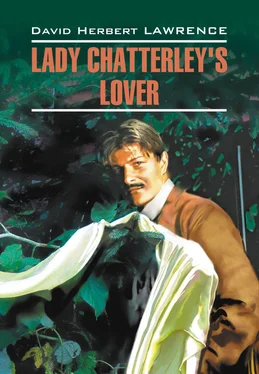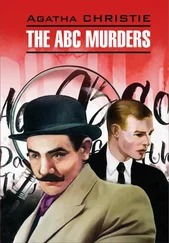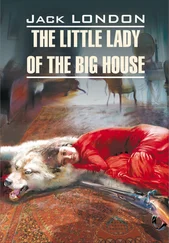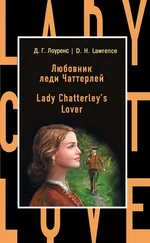In fact everything was a little ridiculous, or very ridiculous: certainly everything connected with authority, whether it were in the army or the government or the universities, was ridiculous to a degree. And as far as the governing class made any pretensions to govern, they were ridiculous too. Sir Geoffrey, Clifford’s father, was intensely ridiculous, chopping down his trees, and weeding men out of his colliery to shove them into the war; and himself being so safe and patriotic; but, also, spending more money on his country than he’d got. When Miss Chatterley – Emma – came down to London from the Midlands to do some nursing work, she was very witty in a quiet way about Sir Geoffrey and his determined patriotism. Herbert, the elder brother and heir, laughed outright, though it was his trees that were falling for trench props. But Clifford only smiled a little uneasily. Everything was ridiculous, quite true. But when it came too close and oneself became ridiculous too…? At least people of a different class, like Connie, were earnest about something. They believed in something.
They were rather earnest about the Tommies, and the threat of conscription, and the shortage of sugar and toffee for the children. In all these things, of course, the authorities were ridiculously at fault. But Clifford could not take it to heart. To him the authorities were ridiculous ab ovo [8] ab ovo – (лат.) от яйца, т.е. с самого начала
, not because of toffee or Tommies.
And the authorities felt ridiculous, and behaved in a rather ridiculous fashion, and it was all a mad hatter’s tea-party [9] a mad hatter’s tea-party – чаепитие у Сумасшедшего Шляпника (персонаж из книги Льюиса Кэррола «Алиса в стране чудес»).
for a while. Till things developed over there, and Lloyd George [10] Lloyd George – Ллойд Джордж, Дэвид (1863–1945), премьер-министр Великобритании в 1916–1922 годах.
came to save the situation over here. And this surpassed even ridicule, the flippant young laughed no more.
In 1916 Herbert Chatterley was killed, so Clifford became heir. He was terrified even of this. His importance as son of Sir Geoffrey, and child of Wragby, was so ingrained in him, he could never escape it. And yet he knew that this too, in the eyes of the vast seething world, was ridiculous. Now he was heir and responsible for Wragby. Was that not terrible? and also splendid and at the same time, perhaps, purely absurd?
Sir Geoffrey would have none of the absurdity. He was pale and tense, withdrawn into himself, and obstinately determined to save his country and his own position, let it be Lloyd George or who it might. So cut off he was, so divorced from the England that was really England, so utterly incapable, that he even thought well of Horatio Bottomley. Sir Geoffrey stood for England and Lloyd George as his forebears had stood for England and St George: and he never knew there was a difference. So Sir Geoffrey felled timber and stood for Lloyd George and England, England and Lloyd George.
And he wanted Clifford to marry and produce an heir. Clifford felt his father was a hopeless anachronism. But wherein was he himself any further ahead, except in a wincing sense of the ridiculousness of everything, and the paramount ridiculousness of his own position? For willy-nilly he took his baronetcy and Wragby with the last seriousness.
The gay excitement had gone out of the war…dead. Too much death and horror. A man needed support arid comfort. A man needed to have an anchor in the safe world. A man needed a wife.
The Chatterleys, two brothers and a sister, had lived curiously isolated, shut in with one another at Wragby, in spite of all their connexions. A sense of isolation intensified the family tie, a sense of the weakness of their position, a sense of defencelessness, in spite of, or because of, the title and the land. They were cut off from those industrial Midlands in which they passed their lives. And they were cut off from their own class by the brooding, obstinate, shut-up nature of Sir Geoffrey, their father, whom they ridiculed, but whom they were so sensitive about.
The three had said they would all live together always. But now Herbert was dead, and Sir Geoffrey wanted Clifford to marry. Sir Geoffrey barely mentioned it: he spoke very little. But his silent, brooding insistence that it should be so was hard for Clifford to bear up against.
But Emma said No ! She was ten years older than Clifford, and she felt his marrying would be a desertion and a betrayal of what the young ones of the family had stood for.
Clifford married Connie, nevertheless, and had his month’s honeymoon with her. It was the terrible year 1917, and they were intimate as two people who stand together on a sinking ship. He had been virgin when he married: and the sex part did not mean much to him. They were so close, he and she, apart from that. And Connie exulted a little in this intimacy which was beyond sex, and beyond a man’s “satisfaction”. Clifford anyhow was not just keen on his “satisfaction”, as so many men seemed to be. No, the intimacy was deeper, more personal than that. And sex was merely an accident, or an adjunct, one of the curious obsolete, organic processes which persisted in its own clumsiness, but was not really necessary. Though Connie did want children: if only to fortify her against her sister-in-law Emma.
But early in 1918 Clifford was shipped home smashed, and there was no child. And Sir Geoffrey died of chagrin.
Connie and Clifford came home to Wragby in the autumn of 1920. Miss Chatterley, still disgusted at her brother’s defection, had departed and was living in a little flat in London.
Wragby was a long low old house in brown stone, begun about the middle of the eighteenth century, and added on to, till it was a warren of a place without much distinction. It stood on an eminence in a rather line old park of oak trees, but alas, one could see in the near distance the chimney of Tevershall pit, with its clouds of steam and smoke, and on the damp, hazy distance of the hill the raw straggle of Tevershall village, a village which began almost at the park gates, and trailed in utter hopeless ugliness for a long and gruesome mile: houses, rows of wretched, small, begrimed, brick houses, with black slate roofs for lids, sharp angles and wilful, blank dreariness.
Connie was accustomed to Kensington or the Scotch hills or the Sussex downs: that was her England. With the stoicism of the young she took in the utter, soulless ugliness of the coaland-iron Midlands at a glance, and left it at what it was: unbelievable and not to be thought about. From the rather dismal rooms at Wragby she heard the rattle-rattle of the screens at the pit, the puff of the winding-engine, the clink-clink of shunting trucks, and the hoarse little whistle of the colliery locomotives. Tevershall pit-bank was burning, had been burning for years, and it would cost thousands to put it out. So it had to burn. And when the wind was that way, which was often, the house was full of the stench of this sulphurous combustion of the earth’s excrement. But even on windless days the air always smelt of something under-earth: sulphur, iron, coal, or acid. And even on the Christmas roses the smuts settled persistently, incredible, like black manna from the skies of doom.
Well, there it was: fated like the rest of things! It was rather awful, but why kick? You couldn’t kick it away. It just went on. Life, like all the rest! On the low dark ceiling of cloud at night red blotches burned and quavered, dappling and swelling and contracting, like burns that give pain. It was the furnaces. At first they fascinated Connie with a sort of horror; she felt she was living underground. Then she got used to them. And in the morning it rained.
Читать дальше












